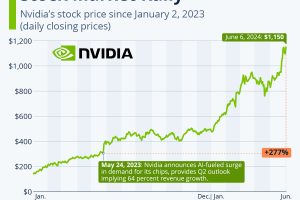“And nowhere in the world all round
Can ever such a place be found”
So runs an extract from the National Anthem of Estonia which is turning out to be an absolute corker of a digital country.
My thanks to Fred Dart who pointed out yesterday that Estonia is initiating a new move in the digital playbook – a national digital currency called the ‘Estcoin’.
The idea comes from the same fertile brain, Kaspar Korjus’, which spawned Estonia’s eResidency programme under which, for a hundred euros, a company can buy eResidency in Estonia which gives it the benefits of being inside the Single Market and Customs Union.
Korjus recalls how, three years ago, he asked the question: “‘Estonia has just 1.3 million residents, but what would happen if our country had 10 million digital residents too?”
“At that time, every citizen and resident could already obtain a secure digital identity that enabled them to access Estonia’s public services entirely online,” says Korjus, “this minimised bureaucracy and made every day life easier, especially for entrepreneurs. So then we wondered — why stop there? Our digital infrastructure can handle far more ‘users’ than the current population.”
It can take only 18 minutes to register a business in Estonia. Tax returns, 99.8% of bank transfers, voting in elections, signing documents and getting prescriptions are all done on-line. Checking company, property and legal records can all be done on line using a government-issue ID card.
Korjus says that the UN is now partnering with Estonia’s e-Residency programme to launch ‘eTrade for All’.
Moving on from eResidency, Estonia is now contemplating the Estcoin, and Vitalik Buterin, founder of the world’s second most valuable crypto-currency – Ethereum – is also behind the Estcoin.
“An ICO (Initial Coin Offering) within the e-Residency ecosystem would create a strong incentive alignment between e-residents and this fund,” says Buterin, “if these Estcoins are issued on top of a blockchain it would become easy and convenient to use them inside of smart contracts and other applications.”
The ICO would raise money which could be put to work in Estonia for the public good.
 Estonia is unusual, and extremely fortunate, in having a president – Kersti Kaljulaid (pictured) – who believes that governments must keep innovating to ensure that countries remain relevant in the digital age.
Estonia is unusual, and extremely fortunate, in having a president – Kersti Kaljulaid (pictured) – who believes that governments must keep innovating to ensure that countries remain relevant in the digital age.
Another initiative Estonia is innovating is the concept of ‘data embassies’ which will support Estonia’s digital infrastructure abroad with the same diplomatic protection as any other embassy.
It is all part of Estonia’s vision of allowing its economy and eResidents to operate worldwide. As the anthem rightly runs: ‘‘Nowhere in the world all round can ever such a place be found.’
To become an Estonian eResident go to: e-resident.gov.ee/estcoin.
 Electronics Weekly
Electronics Weekly



Did I miss the ‘Internet of Turds’ gag in there?
@Stooriefit – Nop 😉
Could maybe simplify the original idea by motorising the toilet seat instead of a lock on the door. The ladies would surely approve as they always complain when we leave the toilet seat up !
I think the Japanese already have them, motorized lavatories that is, or something very similar.
I would have thought that old Adam would have approved of Estonia, Fred, inter-country competition, liberal economic principles etc but I think he might have disapproved of a federalised, centrally-directed EU.
> I think he might have disapproved of a federalised, centrally-directed EU.
Very likely, but since he’s been gone rather a long time, well…
OMG Fred, even Orwell didn’t foresee as shitty a future as this,
IOT was before his time ;-(
Let’s hope the folks at the Adam Smith Institute don’t read Mannerisms then ..
I’ve been racking my brain as to how the UK can make use of all these modern technologies like IOT, become a leader in the field and help reduce the national deficit in the process. Like it or not, increased tax revenue has to come from somewhere, but they can’t think further than a “bedroom” tax, highly unpopular and unenforceable in any case.
So.. why not introduce a “bathroom” tax instead – basically a tax on using the loo, yes even in your own home – you pay to use the loo in your local railway station anyway ( in the UK, not here ) so why not extend the concept? Say charge one pound for a number one, two pounds for a number two and maybe five pounds for a bath! So, how would this work? You have a “smart lock” on your bathroom door which can be opened via an app on your smart phone. You have to agree to the terms and conditions ( one, two or bath ) in order to unlock the door. IOT sensors monitor your movements in order to check whether you’ve had a pee or a bowel movement. The bath or shower won’t turn on unless you’ve agreed to option three. OK, now it’s become a “service”, VAT will be chargeable on each transaction as you’d expect. However you would be VAT refunded on supplies ( bog roll ) so you’d get some back. Should you run out of bog roll, no probs, just say “Alexa – I need some shit paper like urgently” and within minutes an Amazon drone will swing a 24 pack straight through your bathroom window. Nothing innovative about this, the technology is largely there ..